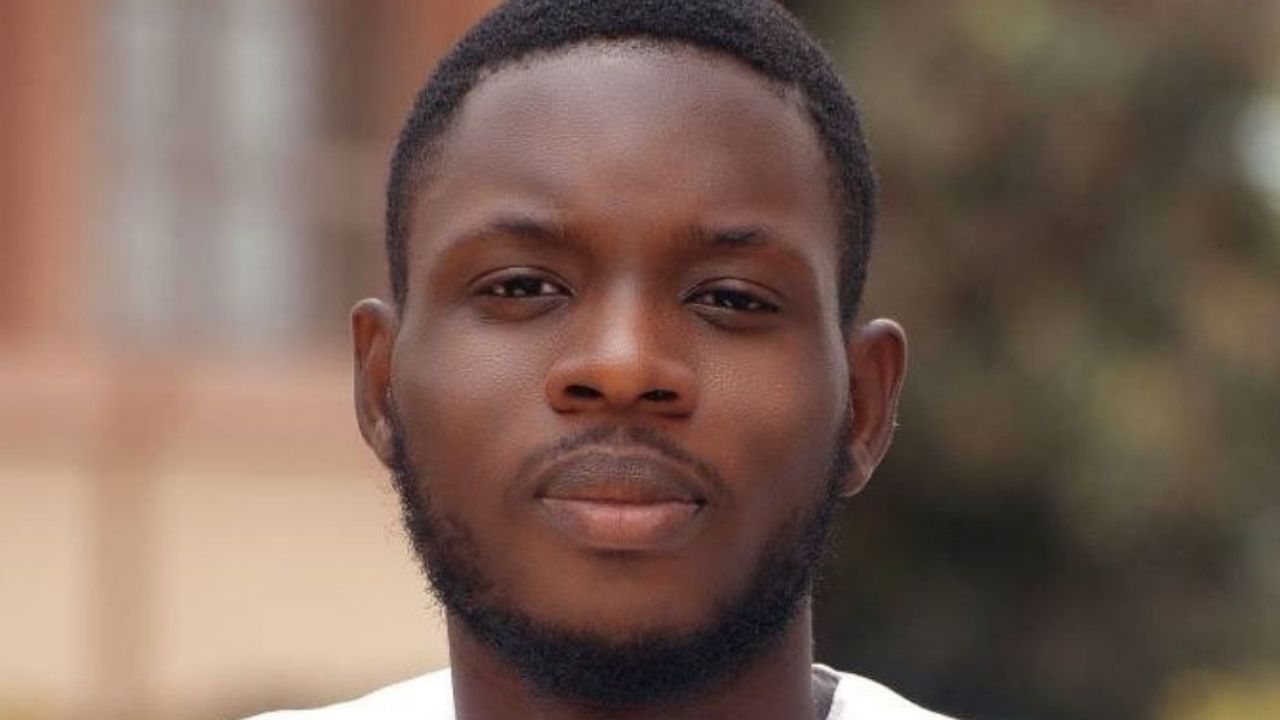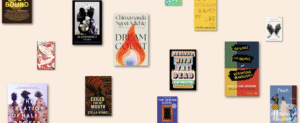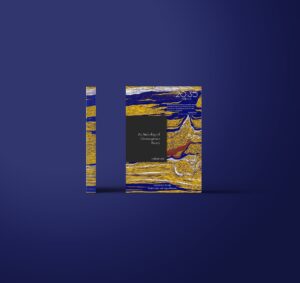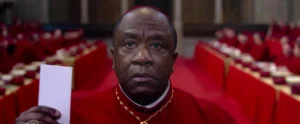I.
Two years ago, I wrote an essay that may haunt me for the rest of my life. It left undeniable evidence of my anti-patriotism, my emotional treason against the green-and-white, backed by coldblooded remorselessness. I may have embraced the darkly comical aphorism that “the best way to be a Nigerian is to be a Nigerian in the diaspora.” That, and the social critic Ayo Sogunro’s quotable summary: Everything in Nigeria is going to kill you.
When I started that essay, I was a cliche: a church rat, a cart-pulling mule, another Lagos writer bending over for some non-literary industry that wanted nothing more than to undo him. I worked late-nights for garri grains, with no likelihood that my talents would ever earn me a satisfactory life, let alone the kind of celebrity I read about in foreign newspapers and magazines, the kind enjoyed by Chimamanda Ngozi Adichie, by Ben Okri, by Nnedi Okorafor, all to varying extents. I wanted nothing more than to get out of my fuckfest of a country.
By the time the essay came out, I was stuffing my jeans and shirts into a Ghana-must-go, about to become a different kind of cliché: just one of thousands of young Nigerians who decided to jápa, to leave behind the country that birthed and bruised them, to seek new homes in various forms of elsewhere. My own elsewhere was the United States.
I joined the newly infamous coterie of Nigerian writers who found refuge within the grand, slave-built walls of American universities, in hopes of securing the much-loved, much-loathed M.F.A. degree. I had become what the culture critic Oris Aigbokhaevbolo, in a provocative essay entitled “The Death of Nigerian Literature,” called “the Nigerian literary immigrant.” And, given the notorious population of writers in a country of over 200 million, who knows how many of us there are?
To be a Nigerian Literary Immigrant is to be a traitor of sorts, some now imply. It is to be a new kind of punching bag. Your association with Western culture is taken as a blemish on your authenticity, and you will have to read fellow writers wonder aloud if the literature you create should be considered part of the national canon.
The authenticity debate used to make me insecure. In my first days here, another African student insinuated that Americans relate to my work because I erase my cultural context. My first instinct was to get defensive, to talk about how my novel-in-progress is influenced almost entirely by pre-colonial West African spirituality and aesthetics. But I soon realized that that comment was not personal, at least not entirely personal. It reflected a specific artistic anxiety in which people equated external influence with loss.
It is an old anxiety. In 1963, when Obi Wali lamented “The Dead End of African Literature,” bemoaning how the bulk of it was produced mainly in colonial languages, a rigorous discourse followed. But Aigbokhaevbolo’s essay, which has significantly different concerns from Wali’s, has been followed by a curious indulgence here and a tepid pushback there or, well, tweets or, worst, agreements, no matter how reasoned. Because there has been no actual counter-argument, that narrative continues. Our literature has died again. The glory days are behind us again. We are always headed for doom. K’ọ́lọ́un ṣàánú.
This tedious obsession, this puritan misinterpretation of belonging and authenticity, should not be taken as the definitive story.
II.
The “search for a better life has resulted in both the depletion of Nigerian writers and Nigerian writing,” Aigbokhaevbolo argues, and links this to the emigration of writers with whom he “shot the breeze” at places like Freedom Park, Lagos. But such a claim as the death of an entire country’s literature needs to be backed by more than a single writer’s immediate vicinity and experience. It seems to have stemmed from at least two questionable premises: that the critic’s own limited circle in Lagos represents the entire literary industry; and that the writers abroad, more specifically the M.F.A. crowd, are not doing much writing.
The first premise and its eventual argument are nearsighted and dismissive. Let me introduce a rather controversial idea: the literary scene exists beyond Lagos! Nigerian writers are doing more work than we have seen in a long time. There are lively literary communities in Ibadan, in Nsukka, in Awka, in digital spaces undefined by geography.
Recent years have seen the rise of new organisations. We have seen 20.35 Africa, whose anthology series is bridging gaps in the conversation around African poetry, and Agbowó, a literary and arts hub with a magazine that publishes bi-annual issues. There is Isele, which runs its own prizes. There is A Long House, which publishes contemplations of Blackness and administers an editorial fellowship. SprinNG, which I co-founded in Ibadan, raises money to support young Nigerian writers through its Women Authors Prize, an advancement fellowship, a writing fellowship, and an M.F.A. Academy.
Open Country Mag has changed African literary journalism with its longform Profiles, features, and reviews, and is solving decades-old infrastructure gaps with its The Next Generation series and a curatorial fellowship, and this year collaborated with bookstore Rovingheights to publish the first ever formal bestseller list in Nigerian literature. There is Za!, whose debut issue delves into African spirituality. And there is Efiko Mag, run by Aigbokhaevbolo himself, which gave us the essay I am responding to.
These platforms are presenting work that deserve critical attention. Some of the writers who run them live in Nigeria. Most of the rest who now live elsewhere founded them while in Nigeria. How could one pronounce our literature dead with this beating heart?
Aigbokhaevbolo’s second premise assumes that Nigerian literary emigration is a unique development that equals abandonment of the industry, and so has been negative for productivity. It is not. The emigration of writers is not a Nigerian phenomenon. There is nowhere in the world in which writing is a stable lucrative path, not like medicine, not like tech. To commit to a literary career is to stare directly into an abyss, to witness its dark nothingness and still fling yourself right into its mouth, hoping to find some semblance of light. Masochist stuff, really. God help us. So from everywhere else writers are emigrating to the West, which has the structure to support it in small ways. This is a positive thing, and it has led to a circumstance in which Nigerian writers in M.F.A. programs are writing more than they ever did but are not publishing their work at the rate you would expect if you were not within the system.
And it makes perfect sense.
Back in Nigeria, I existed in this nonspace of seeking recognition. I wanted to publish as much as possible so I could get readership. There was a restlessness, a need to keep doing and to keep showing that I could publish in this and that place, that I could have an enviable bio.
But then came the M.F.A., a major currency for a young writer, which gives you permission to slow down and calm yourself, to pay attention to the creation and perfection of the work rather than its immediate publication. Weekly workshops taught me to be more critical of my work, to keep producing in silence until I was truly ready to share the work. The small-small publications here and there that I had once chased to give my career some appearance of progression no longer cut it. I had to dream bigger. And to achieve that, I needed to sit down and work myself to the bone, workshop the work to death. Weekly phone calls with writer-friends all over the U.S. confirm that I am not alone in this experience, and that it pays dividends.
Since their respective inhabitations of the Literary Immigrant identity, we have seen the releases of, among others, Arinze Ifeakandu‘s God’s Children Are Little Broken Things, Romeo Oriogun‘s Sacrament of Bodies and Nomad, Logan February‘s Fuckboys, Gbenga Adeoba’s Exodus, and Ukamaka Olisakwe‘s Ogadinma, or Everything Will Be All Right. We have been told to anticipate Ugochukwu Damian Okpara’s In Gorgeous Display, Pemi Aguda’s Ghostroots and The Suicide Mothers, Chukwuebuka Ibeh’s Blessings, yours truly’s Shakespeares in the Ghetto, to name a few.
Look at Open Country Mag‘s annual anticipated and notable book lists and see the slow increase in the number of writers who left Nigeria for an M.F.A. and now have books ready. So the claims that “the Nigerian writer is not heavily involved in the production of literary writing anymore,” and that “to be a Nigerian writer these days is not to be a writer at all,” ignores all the good writing that is already here. One should at least buy and read them before declaring our literature dead.
What is most curious is that Aigbokhaevbolo does not mention the names of writers that belong to this non-productive group. Perhaps if he had been committed to specificity, to the rigor of naming and identifying, to being more microscopic than abstract, he would have realized the flaws in his argument.
This convenient omission is shared by another recent lamentation, this time by the poet Ernest Ogunyemi, a former staff writer for this magazine. His essay, “Is Contemporary Nigerian Poetry Nigerian?“, is an otherwise necessary critique that suffers from far too many moments of puerility. One feels as though they just read literary criticism deployed as a smokescreen for a diss. Perhaps intended to be inflammatory, it got a predictable level of attention. But no response has actually engaged its gripe with contemporary poetry. Perhaps critics do not see the potentially striking points that an actually edited version of the essay would have made?
It is another return of the authenticity question. À fi authenticity yíì náà! Ogunyemi proposes an essentialism that doubles as a petitio principii fallacy, identifying a Nigerian poem through its “placement of Nigerian things” and “Nigerianness” in its lines, as though there were a singular definition of “Nigerian,” as though a Nigerian identity were not in itself rooted in a colonialist fantasy, as though Nigerianness as a cultural or aesthetic signifier were not a nonsensical facade when queried to its existential limits. That stance betrays the critic’s belief in his own conception of Nigerian as the center, and that everything else that does not fit into that is inauthentic. What else could prompt phrasing like “an American poem written by a Nigerian”?
I am a sworn Afrocentrist. But while I would also love to see more cultural lore, spirituality, and code-mixing in our poetry, no one’s intellectual allegiance should be enough to invalidate the inclusion of others’ poetry within such a broad description as “Nigerianness.” You are either Nigerian or you are not; and the poetry you put out automatically has a claim within Nigerian writing. The Nigerianness of a poem is in the Nigerianness of its poet, no matter how they navigate or evade said Nigerianness. This is true of poetry, even though it would be debatable with fiction and nonfiction.
While Ogunyemi’s essay would have come out better if he were guided by a capable editor, no one should pretend that some of its arguments have no merits. He writes that “Nigerian poets are not interested in Nigeria,” that “the world around us is not interesting to us.” I agree to an extent. There is not enough poetry about both the mundane and sociopolitical realities of life back home. Not enough poems about Tinubu, about fuel scarcity, about the sweet palm oil stench of Oje market in Ibadan. We need to encourage more of those. But that certainly does not mean that whomever chooses to not do this is not writing Nigerian poetry. They simply have other concerns that are just as valid.
Aigbokhaevbolo makes good points as well. The most interesting is that there is silence around what happens when writers leave for their M.F.A.s. A disturbing, numbing silence. But the silence is not because Literary Immigrants are not writing at all; it is simply because they are not writing or talking much about their lives after migration. Like most people, before applying for my M.F.A., I had no idea what to expect, how to go about the process. I resorted to reading American writers’ accounts on blogs, unsure how much of their advice was relevant to my situation.
But things are changing. The writer Ucheoma Onwutuebe has detailed her experience; later, she joined a panel conversation of M.F.A. students, moderated by me for SprinNG and attended by 169 people, to discuss the academic, literary, and emotional aspects of immigration. The poet Itiola Jones, who is American Nigerian, recently hosted a two-day SprinNG session on how to apply for M.F.A.s. As more writers speak and write about their own experiences, that gap will be filled.
A truce then with Aigbokhaevbolo and Ogunyemi. There is sense in their overall arguments; they have hit sore points that our literary culture lacks the range to appreciate thoroughly, but they have done it from incomplete perspectives. Where Aigbokhaevbolo does not acknowledge the existence of Nigerian works that do not appeal to his peculiar interests, Ogunyemi denies the validity of works that do not fit into his limited definition.
Ogunyemi is taking a Nativist position. (He belongs to what I now call the Tiwani School, after a Yoruba phrase loosely translatable as Na we get am). For literary Nativists, including the influential Obi Wali, writing must prioritize culturally locatable aesthetics and indigenous linguistic elements. But Nativism is insufficient in a changing world, and even less for the literary culture of a formerly colonized country.
III.
What makes culture criticism more intellectually interesting is the ability to not only identify trends and shifts but to name them, so that we can track their progress, their push-and-pull against other current traditions, their evolution. Until a development is named, we are trapped in unproductive conversations that never go beyond “authenticity.”
But naming is rather rare in Nigerian and African literature today. The most recent effort was by Otosirieze, the founder and editor of this magazine, who, in his introduction to the 2018 anthology Selves: An Afro Anthology of Creative Nonfiction, christened a crop of young African nonfiction writers “The Confessional Generation,” due to their being “unshackled, unspooling confessions in a hitherto unconventional manner.” It was the first time that anyone had pinpointed what is now a noticeable embrace, in African literature, of Americanisms.
So now we have the Nativists, on the one hand, and on the other, the specific category of writers that Aigbokhaevbolo and Ogunyemi’s essays deny legitimacy. Like their critics, these writers are part of the Fourth Generation of Nigerian literature. Like that of the Confessional writers, their approach demands a more specific term, a definition separate from those working in the tradition erroneously deemed the pinnacle of authenticity. We need to understand them as a literary subculture, like the Beat Generation and the New Negro Movement in the U.S., like the Oulipo in France.
Context: In recent years, disillusionment with the Nigerian identity has become more pronounced, with most Nigerians hoping to exist almost anywhere else. Seven out of every 10 Nigerians living in the country are making plans to leave. Desperate Nigerians are taking to sea to escape. (The Same-Sex Marriage Prohibition Act of 2014 has led to a more stifling life for a lot of queer women and men in an already bigoted society; in 2017, seven out of every 10 Nigerian asylum requests in Ontario, Canada were based on sexual persecution). It is a brain drain owed to a host of calamities: failed leadership, insecurity, inflation, unemployment.
Like the rest of their leaving compatriots, some of the leaving writers are disillusioned and express little patriotism toward a birth country that has failed to offer them the flourish they deserve. What we are seeing is that they have become the voices of the entire non-literary generation: the Jápa Generation. These writers are nomads in their work, many untethered to any space in aesthetic. Existentially speaking, they are always on the road, comfortably in flux. These writers, I call the Nomadic Generation.
(An American antecedent: In the 1920s, a number of American writers — disillusioned with their country’s post-war realities of crass materialism, censorship, economic uncertainty, and intellectual drought — migrated to Paris, then seen as the cultural capital of the Western world, where fashion, music, dance, art, and literature flourished. These writers are today referred to as the Lost Generation, a term introduced to the zeitgeist by Ernest Hemingway, who credited Gertrude Stein with coming up with it. The books that came out it? Edith Wharton’s The Age of Innocence, F. Scott Fitzgerald’s The Great Gatsby, and Hemingway’s The Sun Also Rises, with its defense of his disadvantaged generation’s resilience.)
We Nomadists have a keen obsession with the idea of home, locating it in its nonexistence, in the futile and tragic search for it. In “Seafarers,” Adeoba situates us within the imagery of the liminal as an ironic replacement for home:
Bordered by kelp—
brown murals supple as wool—
and a cloud of winged witnesses,
our boat is somewhere
in the middle of the Mediterranean,
miles and miles from the coast
near Tobruk in Libya,
where we had camped
until the smugglers and the sea
spoke of its fidelity.
In “The Sea Dreams of Us,” Oriogun presents the body, the one physical thing that we can all lay claim to, as a more reliable marker of heritage than allegiance to one’s country, to the arbitrary borders of nationhood:
The girl laughs at the sea, saying, our bodies are countries
outside of borders. We watch the night, the return of boats,
the sky above Accra. The horizon beckons, the ship waits
with our journey. What have you given up? I ask her.
Exile is also silence—she says.
In “my mother makes memories crawl on my skin,” Okpara expresses his bitterness at his countrymen’s contribution to his stifling, his inability to express sexual want without fear of consequence:
i pay the conductor
whose eyes hold beauty & charm
whose arms i want to make a home
he takes the money
i begin to wonder where the pain aches more
& if i could run my tongue on him in search of the fire that burns
i know he finds joy elsewhere other than home
. . . a passenger starts to pray
he asks god for journey mercies
i bite my lips & pray
that god neglects their prayers like he does mine.
I call these writers Nomadists because of their complication of nationalism and their geographical movements in search of fresh pasture for the livestock that is their art. They are unencumbered by any ties to nationhood because of, among other things, the absence of an urgent postcolonial reality, military rule, or the pressure to be in conversation with previous generations. They have no inclination toward a nationalist aesthetic, not for the sake of a country that has failed them and their parents. One might argue that the rebelliousness of the Fourth Generation of Nigerian literature peaks with the Nomadists.
The Fourth Generation writers are shapeshifters, always rejecting or renegotiating terms that do not suit them. No previous generation had been so thoroughly defined by its appetite for adventure and resistance to definition. They are also changing our understanding of genres. In their hands, speculative fiction has become more integral to Nigerian literature. (One could argue that it is exactly their disillusionment with Nigerianness that leads many of them to seek out fashioned worlds that ignore or significantly alter the reality of what it is to be Nigerian.)
They have an unbound ability to explore territories for artistic inspiration. It is what has allowed them to be confessional. It is what has enabled them to center queer desire, queer life, queer be-ing in a way that had never been done before. And it is why the Nomadists among them now produce poetry that could be attributed to poets of almost any other nationality — how they are able to give voice to their larger generation’s jápa ambitions. (For a fuller understanding of this variety, one need only look at Open Country Mag‘s The Next Generation series.)
We can, and should, have several traditions and subcultures within the same period in Nigerian literature. The Nativists and the Nomadists have different approaches and that is what makes our literature alive. But the Nativists have to acknowledge that the Nomadists are as Nigerian and are making a different and indispensable contribution by reflecting society.
I want us to deepen this conversation about subcultures. Not all writers in jápa mode are disconnected enough from nationalistic concerns to be called Nomadist. But do the ones who are consider themselves so? Why not publish an anthology under whatever name they deem themselves? I am interested in the new trends, the shifts, that this generation will contribute to the evolution of our literature. There is uncertainty about the path they will take us on — getting published is an uncertain path and there are challenges of building infrastructure at home — but it is dizzying. The future of Nigerian literature is positively terrifying. Our literature is alive.
I suppose what is dying is the enthusiasm paid toward the work we are creating. No one is obligated to read what or who does not interest them. But there is a fine line between dismissing people’s work and erasing it entirely. So we need to actually engage the work we are critiquing, and our critiques need to go beyond binaries. We need to think clearer about how we are thinking about Nigerian literature. ♦
Edited by Otosirieze.
More Essays & Fiction from Open Country Mag
— River Spirit by Leila Aboulela
— “The Nigerian Oppression, as Chinua Achebe Would See It”: Emmanuel Esomnofu
— The Quality of Mercy by Siphiwe Gloria Ndlovu
— Between Starshine and Clay by Sarah Ladipo Manyika
— “Revel, Again, in the Beautiful Absurd”: Ernest Ogunyemi
— Black and Female by Tsitsi Dangarembga
— Sankofa by Chibundu Onuzo
— We Once Belonged to the Sea by Diriye Osman
— “Creating a New Tradition in African Poetry”: 20.35 Africa VI: Introduction
— Biracial Britain: A Different Way of Looking at Race by Remi Adekoya
— The Fugitives by Jamal Mahjoub





4 Responses
Well writing Kanyinsola!
Great write-up. Captures succinctly, the current literary scape in Nigeria.
The Versus Syndrome is such a perennial scourge. Thanks for introducing a most necessary anti-thesis. Although a Nativist myself, I still think we need a synthesized outlook on the nature and truth of things.
Interesting.
But the point must still be made: Nomadists can do as they please and write what they like; that place they have fled, its cultural assumptions and presumed values, define them.
Nothing will change that.
And I do not perceive Nigeria as a place to flee. I see it as a place to fight for, the way the places we flee to fought for theirs.
We need to stop making japa-tistic excuses for migrating. If you must go, go. Nobody can stop you, and nobody will engage the resultant challenges for you.
Just write.
Some of us will read.